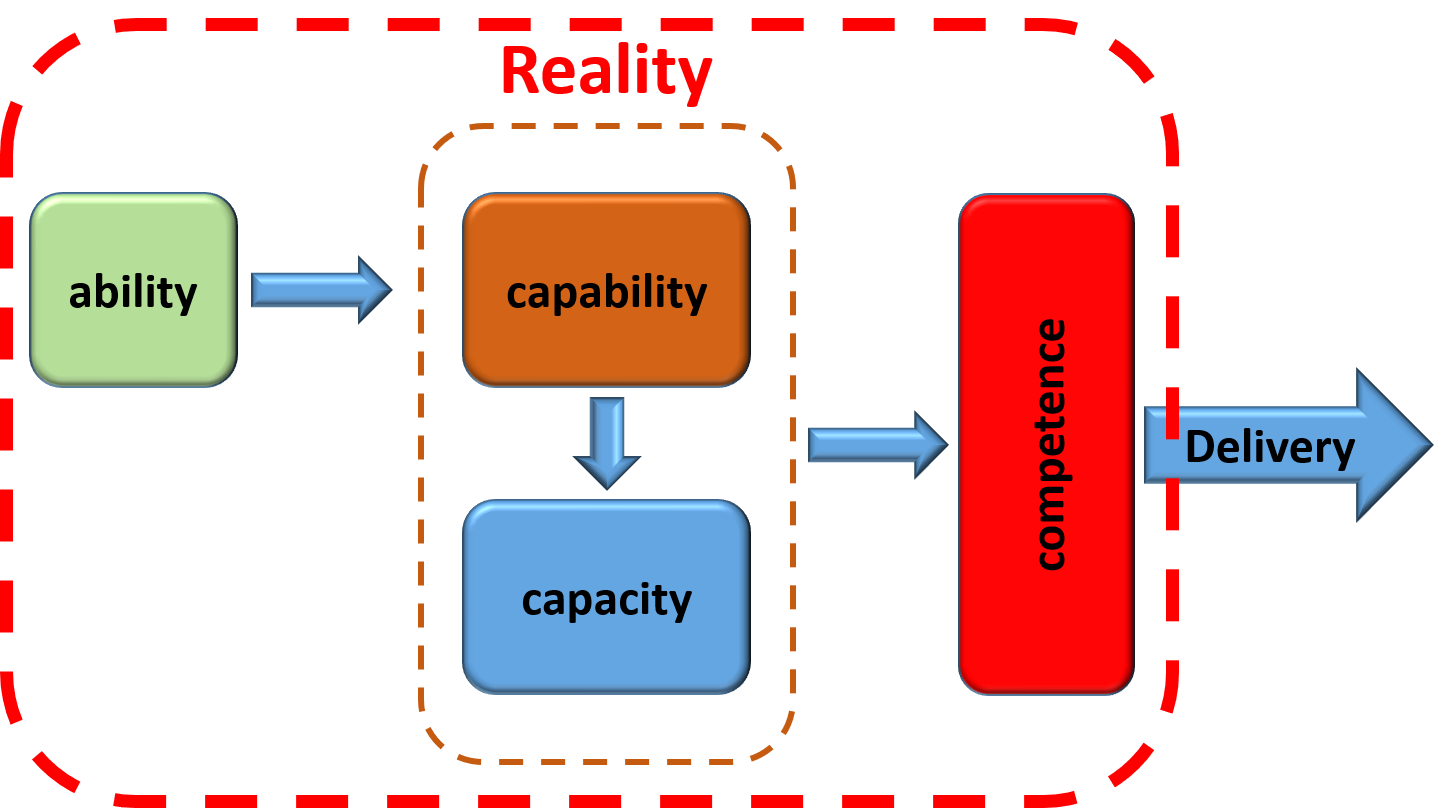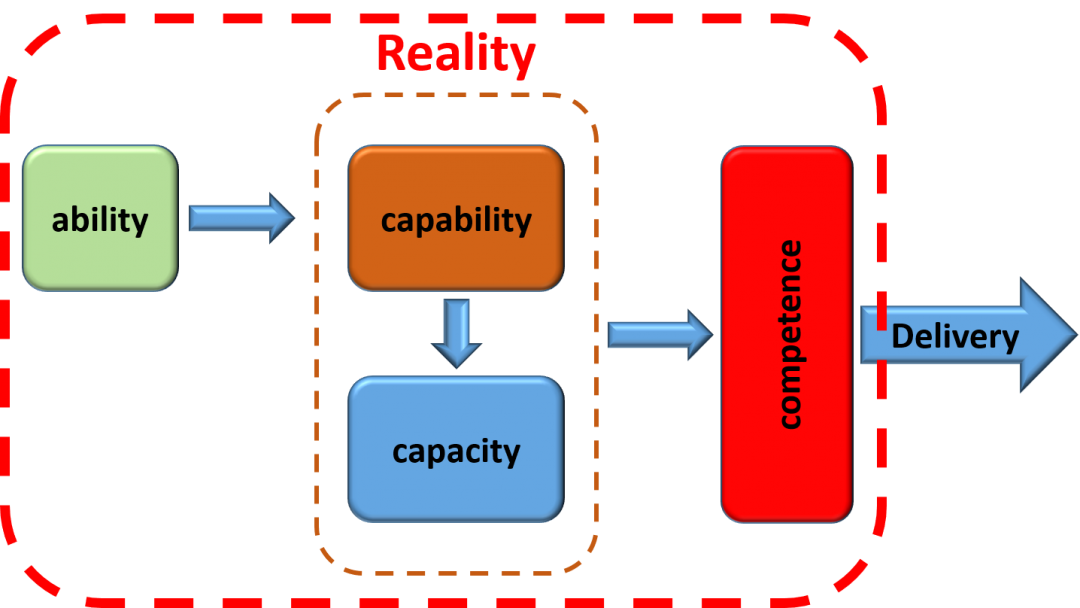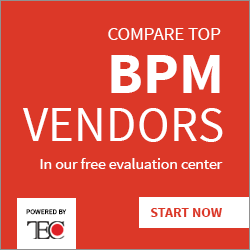Ability, Capability, Capacity and Competence (and Reality)
Blog: The Knowledge Economy
Organisations often promote themselves by expounding on their capability to deliver goods and services to particular market segments.
Organisational capability is only one side of a many sided coin.
 In an individual it is accepted that an ability is the skill or competency to perform a task whether it is physical or mental. An ability is something that is inherent as it is dependent upon the genetic makeup of a person.
In an individual it is accepted that an ability is the skill or competency to perform a task whether it is physical or mental. An ability is something that is inherent as it is dependent upon the genetic makeup of a person.
An ability is therefore an attribute that is either there or not. Organisations do not inherently have abilities that can be exploited. Individuals within an organisation do. If self assessing ability it is essential that a state of ‘wishful thinking’ is not entered into. A belief that you are able when you are not can be extremely costly.
A capability on the other hand is a feature, ability, faculty or process that can be developed or improved. A capability is a collaborative process that can be deployed and through which individual competencies and abilities can be applied and exploited. A capability can refer to an ability that exists in an individual but can be improved upon.
For example:
• A runner may finish a marathon in 3 hours but may through training have the capability to complete a course in less than 2.5 hours.
• A student may be regularly obtaining average grades but with study could achieve significantly better.
• A researcher may have good analytical skills that can be greatly enhanced if they are provided with appropriate toolsets.
• A business decision maker demonstrates the ability to make good decisions but could make excellent decisions if provided with sufficient relevant information.
Again wishful thinking’ may be destructive. Expecting an an unreasonable capability can be reached can consume resources that could be better expended elsewhere.
Within a business setting a Business Capability is the articulation of the capacity, materials and expertise an organisation needs in order to perform its core functions. Defining the Business Capability does not mean that the organisation can deploy it. It must have the capacity to do so.
It is essential that an organisation when defining its required Business Capabilities understands its capacity to deliver. When discussing capacity, it is important to ask “How much do we have?” and the related questions, “How much is needed?” and “When do we need it?”
Having the capacity to deliver goods and services is more important than just having the capability. If a required Business Capability cannot be delivered through capacity issues, then reputational and financial damage is likely to occur. Being able to provide accurate and reliable measures of current and future capacity allows businesses to develop better strategies and set goals that are less likely to disappoint. Misguided over-confidence can result in significant or catastrophic waste.
So what is the difference between Capacity and Capability?
A Capacity is the ability that exists at present whilst capability refers to the higher level of ability that could be demonstrated under the right conditions.
As well as understanding abilities, capabilities and capacity it is important for an organisation to be aware of its competence. This is the quality or state of being functionally adequate or having sufficient knowledge, strength and skill to deliver what is required. Competence therefore is another word describing the ‘know-how’ or ‘skill’ of an individual or business.
As an example:
- I have the ability to run
- I have the capacity to run a 100m race in 18 seconds
- I have the capability to improve my capacity through training to 15 seconds.
- As a runner I am incompetent as I cannot compete successfully.
Organisations focus on the capabilities that they require in order to succeed. With good strategies and forward planning in place they may also be cognisant of the capacity that they require in order to deliver successfully. Hopefully they will also be realistic about their competence to deliver quality products and services.
Unfortunately, organisations often fail to realise the benefit of their greatest asset – the individuals it employs. Individuals often have abilities that are frequently under-utilised within their workplace. This may be that the role in which an individual sits does not require the skills that demonstrate their abilities. Consequently, entire valuable skills sets may be unused through there being no organisational awareness that they exist or the imposition of organisational constraints to their being leveraged. Business Capabilities that could be enhanced remain stagnant through ignorance of the actual capacity within the organisation or reluctance to cross organisational boundaries.
A successful organisation will be aware of all of its assets, realistically understand the Business Capabilities it requires, have sufficient measurable capacity and be competent in its delivery.
The key to better understanding is to have an established set of quantitative rather than qualitative measures. Taking the emotion out of the equation reduces the potential for wishful thinking.
Being able to make dispassionate and repeatable assessments injects reality into the decision making process.
The post Ability, Capability, Capacity and Competence (and Reality) appeared first on The Knowledge Economy.
Leave a Comment
You must be logged in to post a comment.








